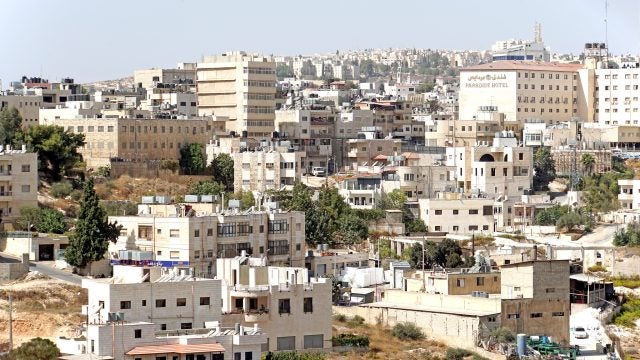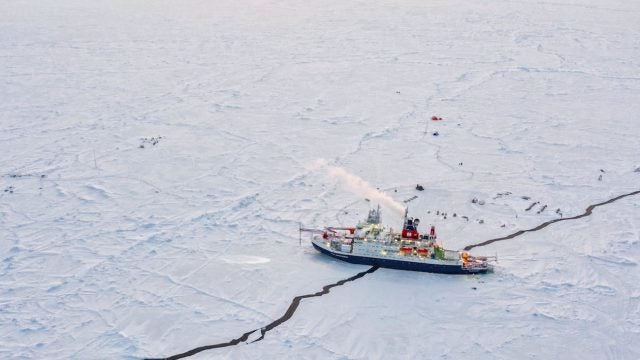Title: The Overseen Factors Impacting the Afghan Peace Process
The international community is focused on the ongoing intra-Afghan peace process, which has steadied despite several challenges. There are two developments, however, that will have a lasting impact on the process: The International Criminal Court’s investigation into war crimes committed by the Taliban, Afghan forces, and US forces, and the strategic evolution of the Taliban as a legitimate political actor.
The Afghan peace process is promising. The current round of talks began in September 2020, following a US-Taliban agreement and US-Afghanistan Joint Declaration in February 2020. Both of these joint agreements created the basis for beginning the necessary intra-Afghan dialogue. Violence, however, has continued in Afghanistan. Since the agreements, the Taliban have not attacked any foreign troops but have continued attacking Afghan National Security Forces and civilians. Afghan security officials stated that in the third week of October alone the Taliban staged 356 attacks along with 2 suicide and 52 mine explosions. Agreements, therefore, do not cease violence but peace talks, no matter how slow, do create favorable conditions for ceasefires.
The Taliban’s first ceasefire was in June 2018 and lasted for three days to mark the customary duration of Eid ul-Fitr. Since then, the Taliban has declared ceasefires two more times: once in December 2019 before the onset of their talks with the United States, and another time in May 2020 to mark Eid ul-Fitr. With continuous talks going on, more frequent and longer ceasefires seem possible and promising. But more than ceasefires, there are two developments that will have a larger—and perhaps longer—impact on the peace process: The International Criminal Court’s (ICC) investigation into war crimes committed by Afghan and US forces in Afghanistan, and the evolution of the Taliban as a legitimate political actor.
The international community has been paying close attention to the peace talks’ process, the actors involved, and the implications for foreign troop withdrawal from Afghanistan. The process, however, has been painstakingly slow. Even when the Afghan government and the Taliban met in Doha, Qatar on September 12, 2020 neither side could agree on the procedures for the talks or even a meetings schedule. Finally, on December 2, 2020 Nader Nadery, senior advisor to President of Afghanistan Ashraf Ghani, tweeted that a process and a preamble have been agreed upon. Mohammad Naeem, the Taliban’s spokesman based in Doha, also tweeted confirming the agreement, with US Special Representative Zalmay Khalilzad praising both sides for reaching this milestone. While the negotiations about the agenda will be similarly slow and contentious, the coordination between the Afghan government and Taliban is an encouraging show of goodwill and coordination.
Along with the talks, the plan for US troop withdrawal is also under scrutiny by US policymakers, allies, and regional stakeholders alike. On November 17, 2020 the Pentagon announced that the United States would be withdrawing approximately 2,000 US troops from Afghanistan by January 15, 2021. This troop reduction would leave approximately 2,500 US troops in Afghanistan to protect US embassies and other US agencies working with the Afghan government. While the date of the withdrawal seems political—President-elect Joe Biden will take office on January 20, 2021—and has raised some policy concerns, there is a general consensus among American policymakers that the US war in Afghanistan needs to end. US allies, however, remain critical of US plans to leave Afghanistan. NATO Secretary General Jens Stoltenberg stated that the NATO mission will remain and any withdrawal plans are “conditions-based” and will not be discussed till the next NATO defense minister meeting, scheduled for February 2021. Even Afghanistan and regional stakeholders are concerned about this most recent withdrawal announcement.
The International Criminal Court’s (ICC) March 5, 2020 reopening of its inquiry into war crimes committed by the US military, Afghan authorities, and the Taliban, however, is an important development—and will impact the peace process. The Trump administration acted swiftly: on June 11, 2020 President Trump issued an executive order where ICC lawyers, judges, researchers, and other staff could have their US bank accounts frozen and US visas revoked, and on September 2, 2020 the United States applied sanctions for the first time on an ICC prosecutor. But the ICC’s investigation is not a surprise. The US-led war in Afghanistan is one of the longest wars in modern time, and activists have long been calling for investigations on various militaries for human rights abuses. Just recently, the Australian government released a gruesome report on unlawful killings by one of Australia’s special forces in Afghanistan. These investigative reports make an unwavering case for withdrawing foreign troops from Afghanistan. With regards to the peace process, the Taliban and Afghan government have two choices: they can either ignore ICC’s investigation and its findings or acknowledge them and work toward building trust. Ignoring ICC’s findings offer little benefit and will likely make the peace process seem hollow. Addressing ICC’s findings, however, will allow for all stakeholders, including foreign forces, to be held accountable, which is necessary for creating lasting pathways for reconciliation.
The second neglected development is the Taliban itself. What do these peace talks really mean for the Taliban? Are they on the path of becoming like the Muslim Brotherhood or Hezbollah—groups that are still labeled as “terrorist groups” but more or less function as legitimate political parties with some local support? Since 2017, Afghanis have been cautiously optimistic about the possibility of a reconciliation between the Afghan government and the Taliban. Awareness and support for the peace talks among local Afghanis have grown as well, making one thing crystal clear: the Taliban are here to stay. As the peace process continues, the Taliban’s place in a post-war Afghanistan will have both regional and international implications. For starters, it will help solidify the Taliban’s position as a legitimate political actor and a representative of Afghanistan on the international stage. The Taliban of today is not the same from 2001, when the 9/11 attacks took place. Rather, the Taliban have become more sophisticated: the group has a growing relationship with Russia, its Central Asian neighbors, and even the United States. Whether or not the Taliban would participate in an Afghan national election or even get voted into office is yet to be seen, but if peace talks are successful, then all of these scenarios are possible.
While peace remains elusive in Afghanistan right now, the continuation of these talks is a huge achievement for both the Afghan government and the Taliban. It is also commendable that the Trump administration is encouraging both sides to speed up discussions and reach a permanent ceasefire. But it is now time to think concretely about the permanent aftereffects of the war in Afghanistan, specifically about the atrocities and human rights violations committed by sovereign and legitimate armed forces and the Taliban’s transformation into a regional player. For example, as a member of the ICC, the Afghan government should support the ICC investigation into war crimes by foreign troops, Afghan forces, and the Taliban in an effort to hold all parties accountable for their role in the loss of thousands of innocent Afghan civilians and to create a foundation for post-war reconciliation and lasting peace. The Taliban should also focus on post-war reconciliation and economic reconstruction, starting with reducing its opium production and finding other legitimate sources of revenue.
. . .
Sahar Khan is an adjunct fellow in Defense and Foreign Policy Studies at Cato Institute.
Recommended Articles

Critical maritime infrastructures (CMI), and in particular undersea communication cables, are increasingly under threat of attacks by malign actors who benefit from asymmetric capabilities and jurisdictional complexities in the maritime…

This article explores how the Palestinian crisis and the death of the two-state solution endangers the Hashemite Kingdom of Jordan. It illuminates the complicated relationship between Jordan, Israel, and Palestine…

This article explores the uncertain future of Arctic governance amid shifting global geopolitics. It argues that whether Washington and Moscow opt for confrontation or cooperation, multilateralism in the Arctic…